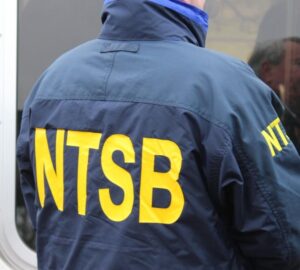One of my favorite TV programs is Air Disasters on the Smithsonian Channel. I’m not sure why. Maybe it’s simply morbid curiosity. (I’m not sure what that says about me.) But every week catastrophic incidents in aviation history are meticulously re-enacted, providing insight into what went wrong and if the crashes and near-disasters could have been prevented.
Accounts from survivors combine with computer images to weave these gripping tales, and expert testimony reveals the reasons behind these events, some of which have resulted in significant changes to aviation safety and regulations.
 Each episode features one, lead investigator on the scene from the National Transportation Safety Board (NTSB) who’s in charge. That person’s job it is to figure out what went wrong and recommend safeguards so it won’t happen again. It’s a very important role.
Each episode features one, lead investigator on the scene from the National Transportation Safety Board (NTSB) who’s in charge. That person’s job it is to figure out what went wrong and recommend safeguards so it won’t happen again. It’s a very important role.
As the president of the Society for Church Consulting, I help advance and revitalize churches by training leaders and certifying consultants. A trained and certified church consultant is a lot like the lead investigator at the scene of an air disaster. Here are some reasons why.
Data Driven
Just as the lead investigator gathers and analyzes information from the flight data recorder, listens to cockpit voice recordings, and uses computer generated reenactments to get a fact-based, cognitive picture of exactly what happened, a church consultant uses hard data from congregational surveys to help discover possible reasons for the present, difficult situation the church is experiencing. Continue reading
